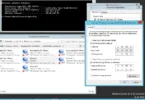The Reserve Bank of India (RBI) recently changed cheque rules in India, to tackle the rise in cheque related fraud cases. It asked banks to put preventive measures in place and follow them meticulously. It also issued some other guidelines in this regard.
New Update Cheque Rules in India
- One Day Cheque Clearing System 2016
Here is what you need to know: CTS-2010 cheques: The RBI asked banks to ensure the use of 100% CTS-2010 compliant cheques. As part of the Cheque Truncation System (CTS), an electronic image of the cheque is transmitted to the cheque-writer’s bank branch through the clearing house, along with other relevant information. It helps eliminate the need for physical movement of the cheque for verification. Thus the scope for fraud is reduced.
Cheque Rules in India From The Reserve Bank of India
Many times, even though the original cheques were held by the account holder, fraudsters enchased cheques with the same number. So, banks have been advised to take appropriate precautionary measures to ensure that confidential information like customer name, account number, signature, cheque serial numbers and other information are verified and not misused in any way.
SMS alerts: The RBI as per new cheque rules in India, asked banks to send an SMS alert to both payer and drawer when the cheque is received for clearing. Till now, SMS alerts were compulsory only for debit/credit card transactions. While dealing with suspicious or cheques of high value, banks have been asked to alert the customer by a phone call and obtain confirmation from both the parties involved in the transaction. The account holder’s bank branch must also be contacted.
Cheque-handling infrastructure: Among other preventive measures, RBI stated that as per cheque rules in India, must have high quality of equipment and personnel must be ensured for CTS-based clearing. Banks should not look at it as a mere mechanical process, but consider it as an important part of cheque-handling.
Examination of cheque rules in india: Besides sending alerts, banks have been asked to examine cheques under UV lamp. This is applicable if the cheque amount goes over Rs 2 lakh. Also, a mechanism must be put in place to ensure multi-level checking of cheques for amount over Rs 5 lakh. Banks are also required to closely monitor how money is deposited or moved out from newly opened transaction accounts.
KYC compliance: Whenever you open a new bank account, you are supposed to go through a process called Know Your Customer or KYC. This is a must. It ensures that the bank verifies information about you, thus limiting fraud cases. So, it goes without saying that the person writing the cheque will be compliant with KYC rules. The RBI now states that even the recipient should be KYC compliant.
Read about:
- 5 Lessons I’ve Learned from having my Credit Card Hacked
- DIY to Find Research Work at Home Jobs SCAMS
- How to Sell your Property with Best Rewarding Way
- How To Control House with Phone very Smartly and Easily
So, this is a new policy introduced by RBI for cheque rules in India, hope this information may help you for secure bank transactions.







Leave a Comment
You must be logged in to post a comment.